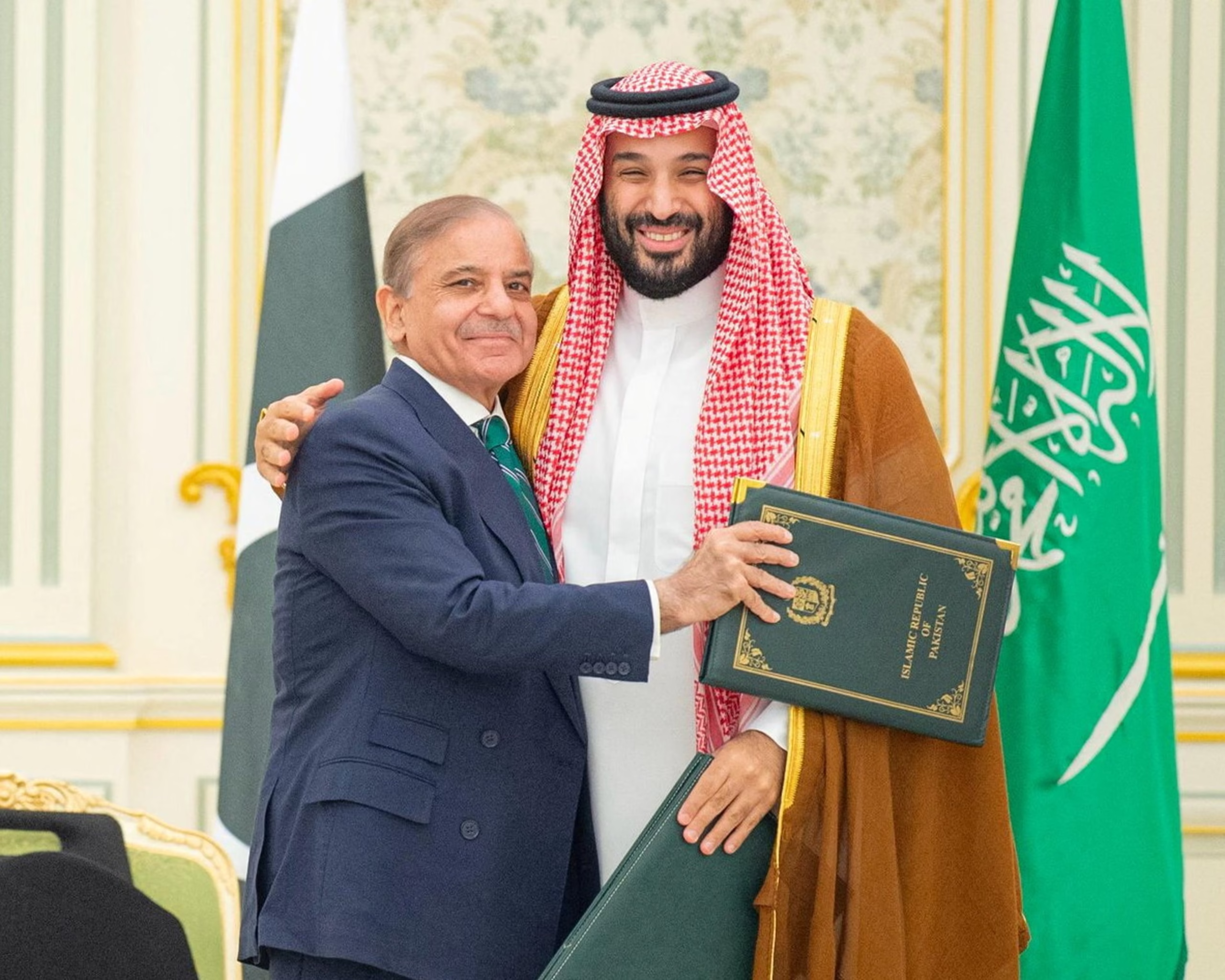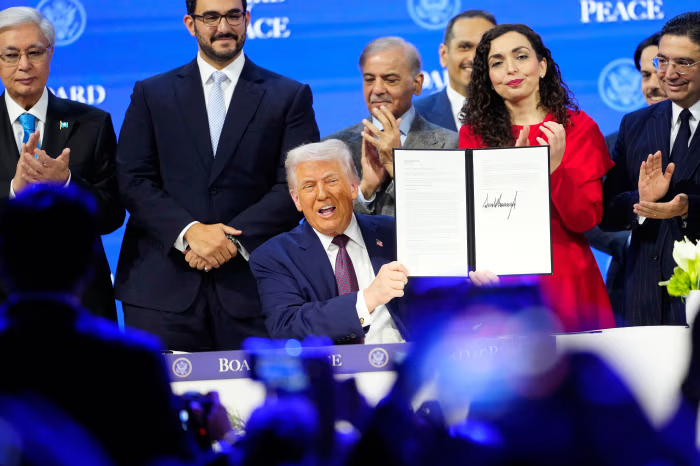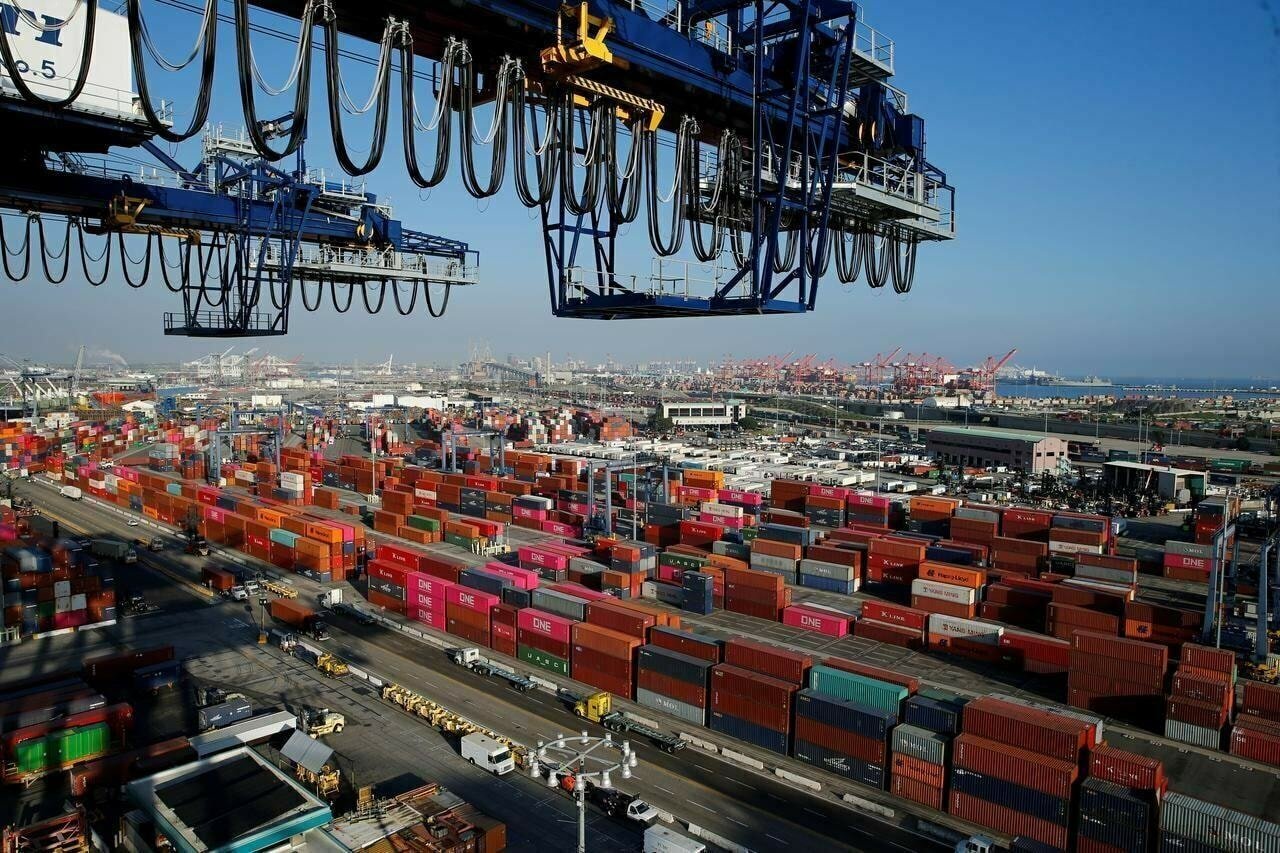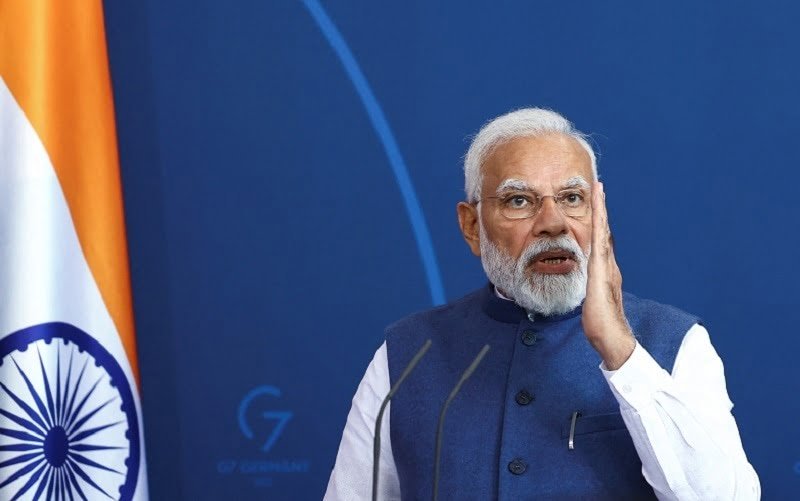Arshad Mahmood Awan
The recently signed Strategic Mutual Defence Agreement between Pakistan and Saudi Arabia represents more than just a bilateral development; it is a historical pivot in the way regional security is being redefined. Coming so soon after Israel’s aggression against Doha, the timing underscores the urgency Muslim states feel in forging collective security guarantees independent of traditional Western power structures. For both Islamabad and Riyadh, the pact is a calculated step to claim agency in a volatile region where trust in the United States as a sole security guarantor has steadily eroded.
This partnership is not born in isolation. The roots of Pakistan–Saudi cooperation stretch across decades of military and economic interdependence. Pakistani troops have served on Saudi soil in defence and training roles, while Riyadh has repeatedly extended financial lifelines to Islamabad in times of dire economic distress. The new pact, however, formalises this enduring relationship into a codified framework, projecting it into a world order increasingly marked by multipolar alignments and shifting alliances.
Follow Republic Policy on YouTube
At the heart of the agreement lies a profound but simple commitment: an attack on one state will be considered an attack on both. This transforms vague assurances of solidarity into a binding deterrent, fusing Pakistan’s military resilience with Saudi Arabia’s financial and political influence. Such a joint declaration resonates far beyond symbolism—it creates a tangible umbrella of security with implications stretching from the Gulf waters to South Asia’s contested borders. For adversaries, it sends a clear message: neither nation stands alone.
The pact’s optics are equally powerful. Israel’s strike on Qatar was a wake-up call for Gulf monarchies, reminding them that even Washington’s closest allies cannot always count on American intervention when sovereignty is violated. For Riyadh, this accord represents reassurance rooted in mutual self-interest rather than conditional external guarantees. For Islamabad, it elevates its stature as a pan-Islamic security partner, positioning Pakistan at the centre of an evolving Gulf defence architecture.
Follow Republic Policy on Facebook
Beyond the military dimension, the pact has unavoidable economic implications. Defence cooperation often travels alongside economic partnership, and this agreement is likely to catalyse new flows of Saudi capital into Pakistan’s fragile economy. With Riyadh already among Islamabad’s top investors and donors, the enhanced trust born of a defence pact is expected to translate into concrete commitments in energy, infrastructure, and industrial development. For a country in need of financial stability and growth momentum, such investment could be transformative.
Follow Republic Policy on TikTok
The domestic political impact is also significant. In Pakistan, the pact reinforces the message that the nation is far from isolated. Instead, it remains central to the collective security calculus of the Muslim world. For Saudi Arabia, it signals to its people and regional rivals that the kingdom is diversifying its alliances and asserting its independence rather than depending solely on distant superpowers. This is particularly relevant at a time when Israel’s policies are destabilising the region and Iran continues to loom as a strategic competitor across the Gulf.
Follow Republic Policy on Instagram
India cannot be ignored in this equation. New Delhi will be closely observing the Saudi-Pakistan understanding, considering the implications for South Asian balance. Yet the pact is not primarily aimed at India. Instead, it is anchored in fortifying Gulf security and embedding Pakistan and Saudi Arabia as co-anchors in a broader regional security framework. If anything, other Gulf Cooperation Council states may view the pact as a precedent, potentially drawing the region closer to collective defence arrangements modelled on this partnership.
Follow Republic Policy on WhatsApp
The agreement’s importance extends to questions of strategic autonomy. As America’s ability and willingness to act as sole guardian diminishes, multipolarity fills the vacuum. China’s growing presence in the Gulf, Russia’s reassertion, and Europe’s uneven engagement all complicate the regional landscape. In such an environment, Pakistan and Saudi Arabia’s decision to formalise their cooperation reflects an awareness that Muslim states must take responsibility for their own security futures.
Crucially, the pact is not just about tanks and aircraft but about confidence, political trust, and resilience. It reassures both sides that their vulnerabilities will not be exploited in isolation. The symbolism of two key Muslim states—one with unmatched military experience, the other with unparalleled financial and religious influence—standing together underlines the aspiration of a collective Islamic deterrent. It may not yet be an “Islamic NATO,” but it is certainly a step toward a framework where Muslim states collaborate proactively rather than reactively.
For Pakistan, the economic dividends may be just as consequential as the military ones. Meaningful Saudi investment, particularly in energy security and industrial production, could stabilise Pakistan’s fragile balance of payments and help sustain growth. For Saudi Arabia, diversifying its alliances by institutionalising military cooperation with Pakistan provides reassurance as it navigates the uncertainties of Vision 2030 and its transformation away from oil dependence.
The pact also has a symbolic domestic utility. It bolsters political capital for Pakistani leaders, showing their citizens that Pakistan remains a central pillar in the Muslim world’s strategic landscape. For Saudi leaders, it demonstrates proactive independence, a willingness to forge alliances based on shared interest rather than the shadow of superpowers. This domestic messaging cannot be underestimated, as both states confront internal economic pressures and political challenges.
Looking ahead, the Strategic Mutual Defence Agreement is likely to set the stage for a broader Gulf-South Asia defence arc, one that other states could join over time. Its success will depend on how well the military commitments are operationalised and how effectively economic ties are deepened in tandem. But even at its signing, the accord represents the most serious step in decades toward a formal regional security framework rooted in Muslim self-reliance.
Ultimately, this is not just a military pact; it is a strategic and economic reorientation. It is about reclaiming agency in a volatile neighbourhood, recognising that standing together offers greater stability than waiting for external guarantees. For Pakistan and Saudi Arabia alike, the pact signals a determination to shape their own destinies in an increasingly uncertain world. Its implications will be long-lasting, reshaping Gulf security while deepening the economic and political interdependence of two of the Muslim world’s most consequential states.















